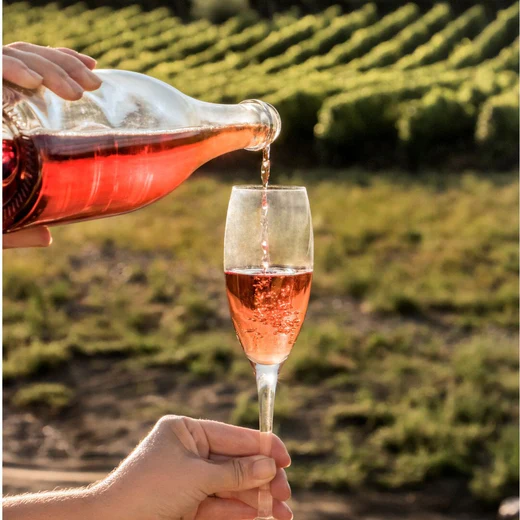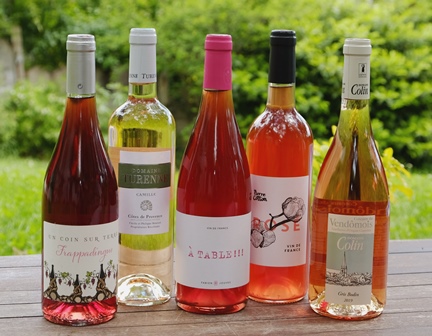
Rosé wine selection
As soon as the sun's rays appear, terraces and summer tables welcome rosé wine. This light and refreshing wine, with its fruity aromas and often pale or salmon-coloured, and sometimes denser, colour, is back in fashion. Organic rosé wine is more than a fashion, it is a way of life.

55,90 €
235,00 €
Rosé wines: our organic, biodynamic and natural wines
How is a rosé wine made?
A rosé wine is made using the same vinification process as a red wine, except that the colour of the must (fresh, unfermented juice obtained after crushing or pressing the grapes) is restricted. Its maceration is therefore shorter (between 6 and 48 hours), which gives it its lighter colour. These wines have little tannin due to their limited contact with the grape skin. They are generally made from white-fleshed red grape varieties (Gamay, Grenache, Pinot Noir, Sangiovese, etc.). Organic rosé wine differs from classic wines in the viticulture methods and the respect of biodiversity.
Why opt for an organic and natural rosé?
Organic rosé wine is not only tasty, but also more respectful of health and the environment. Organic wines comply with very precise European specifications: treatment of the vines without chemicals or herbicides, mechanical working of the vines, 100% natural fertilisation, etc. Sulphite-free rosé wine contains very little, if any, added sulphur. As for biodynamic rosé wines, they are cultivated according to lunar cycles and homeopathic principles in order to preserve the terroir and the aromatic complexity of the grapes. All our winemakers are passionate about natural wine and work every day to promote organic and natural rosé wine.
Which organic rosé wine to choose?
Organic rosé wine is perfect with an aperitif or many dishes, salads, grills. How do you choose the right wine to go with your dishes?
● A rosé wine for the aperitif: it should be fresh and thirst-quenching. Opt for a rosé from Provence for a safe bet, or a rosé from Languedoc for a more complex and fruity wine.
● An aromatic rosé for the main course: for a fuller-bodied wine with flavour, head to a region like Bordeaux, Bergerac or the Rhone Valley.
● A slightly sweet organic rosé wine for dessert: accompany your dessert with a fruity, sweet wine from the Loire Valley.















